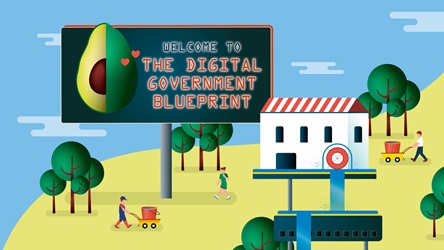Is Bottled Water Really Better?
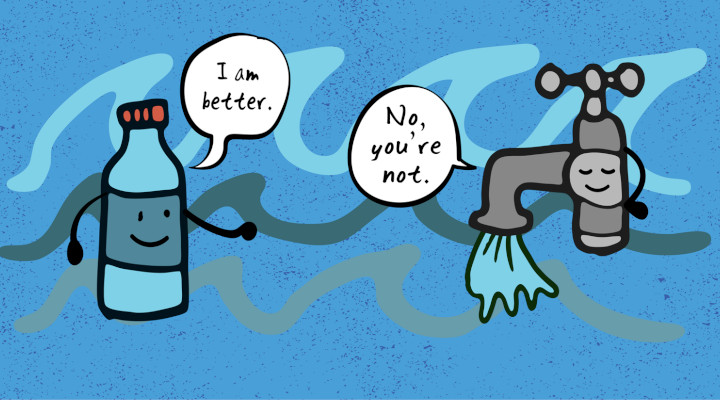
Safe and Hygienic
Singapore’s tap water is thoroughly compliant with the World Health Organization’s (WHO) Guidelines for Drinking-water Quality.
A quality test on Singapore’s tap water by Channel NewsAsia revealed no bacteria in all the water samples taken from various public taps located in coffee shops, shopping malls and MRT station toilets.
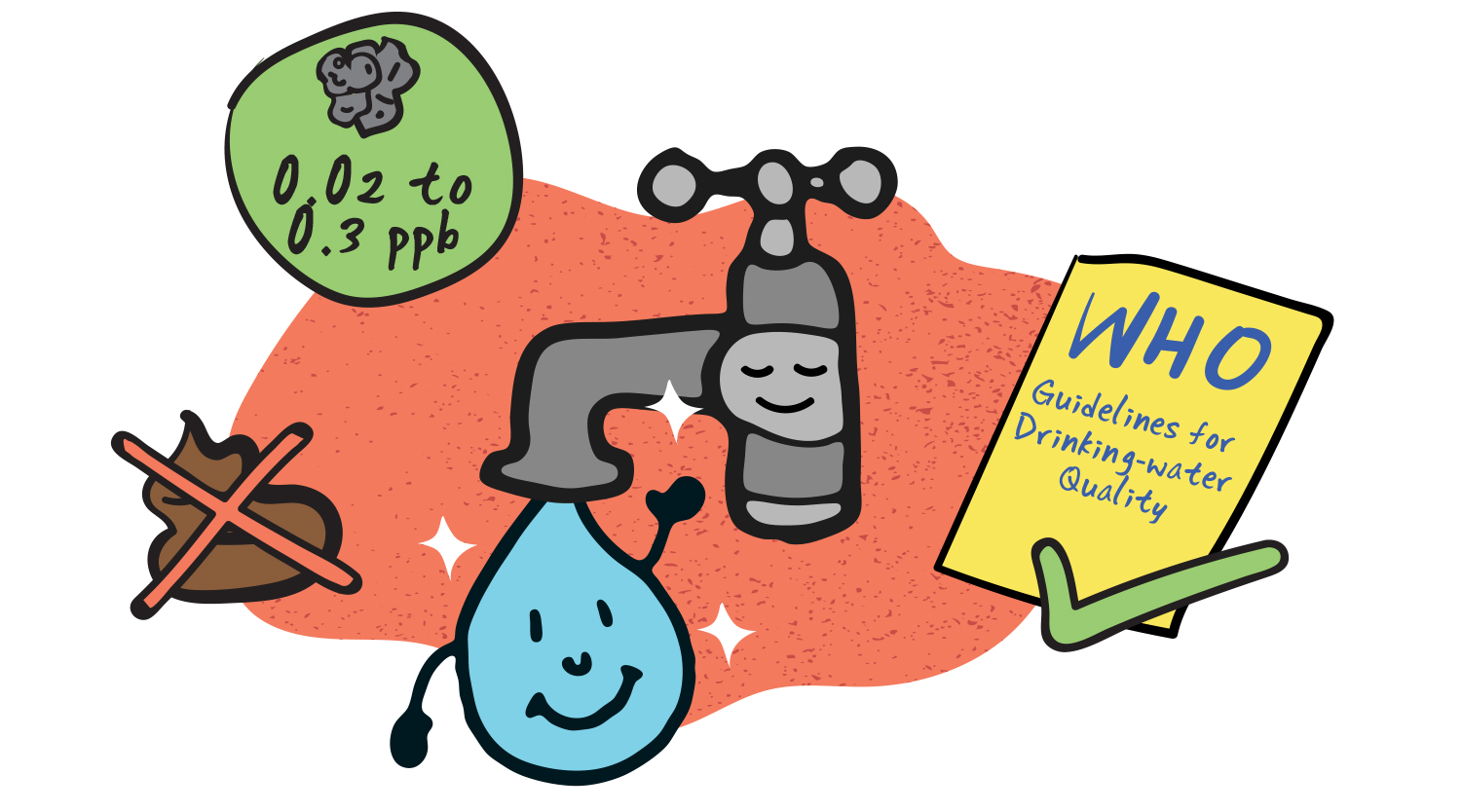
Trace metals such as arsenic and lead present in the water ranged from 0.02 to 0.3 parts per billion (ppb), which is well below the WHO guideline of 10 ppb.
Ms Erny Kartolo, from the Drink Tap, Drink Wise campaign, says the surroundings of a tap, such as the condition of the sink, can influence our perception of the water’s cleanliness. More people are willing to drink tap water from water dispensers than from taps above sinks, for example.
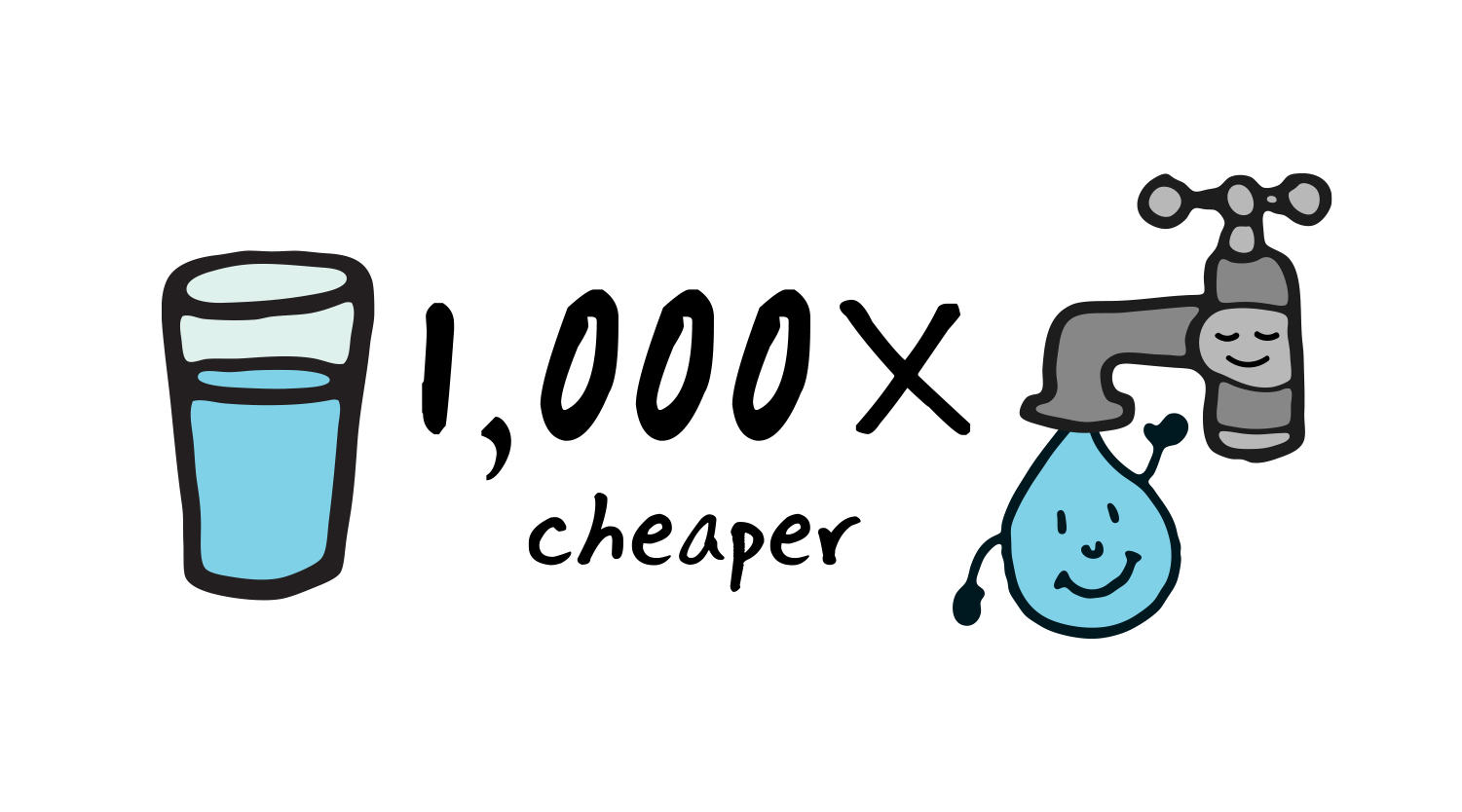
Lower Cost
According to the national water agency PUB, tap water is 1,000 times cheaper than buying bottled water. The retail price of a 600ml bottle of water costs about 50 cents to $1 while tap water costs 0.1 cents for the same volume.
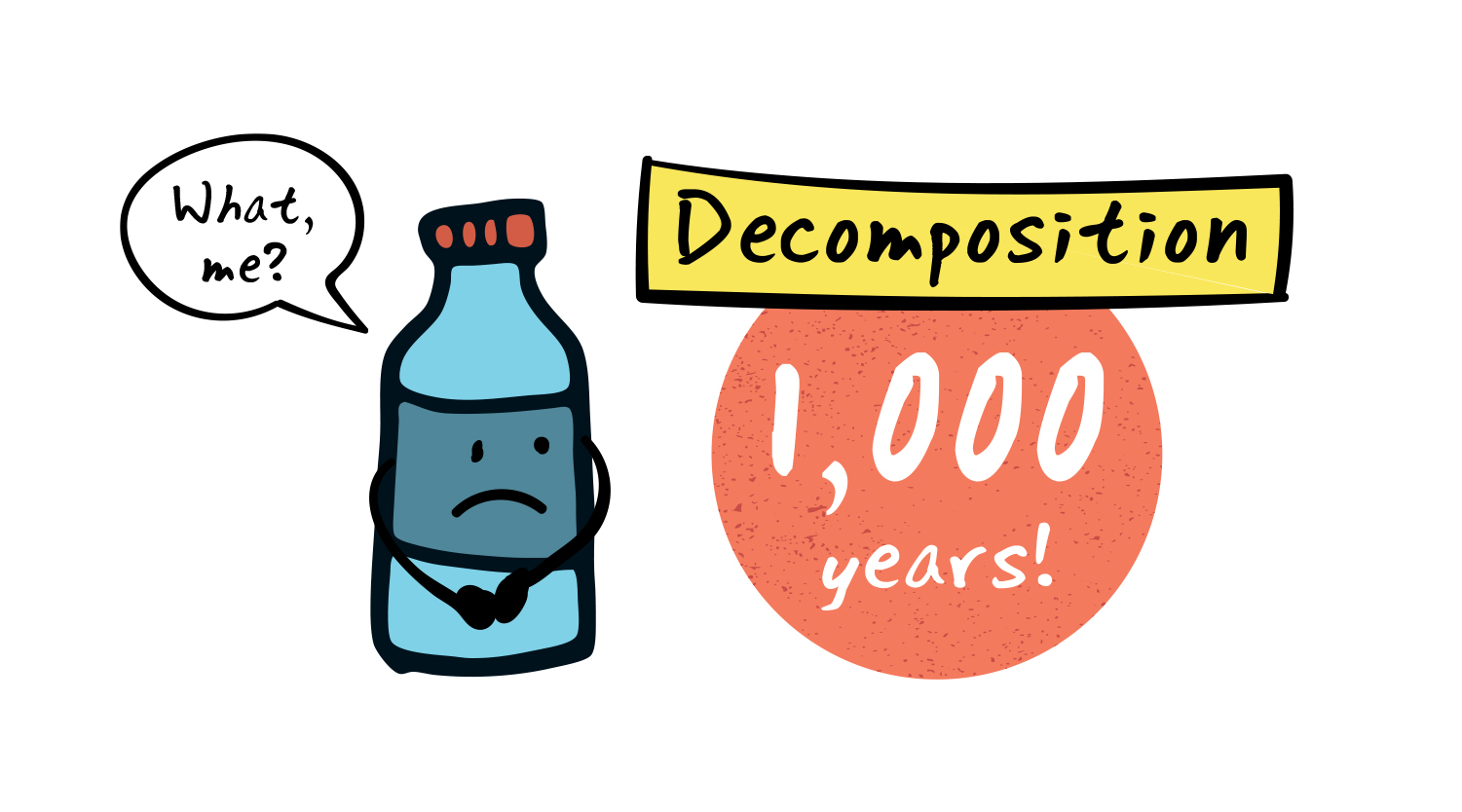
Friendlier To the Environment
The Singapore Environment Council reported that Singaporeans use 476 million PET (polyethylene terephthalate) bottles annually.
It takes
- 1,000 years for one plastic bottle to decompose
- 6 times as much water as there is in one bottle to manufacture each container
The carbon footprint of tap water is only 1/300 or 1/1000 compared to bottled water.
Can water turn bad?
Tap water can last up to six months. While water itself does not turn bad, a plastic bottle that contains it does “expire” as its properties may leach into the drinking water. The water inside may taste different due to its mixture with its surrounding air, but it is still safe to drink.
Wait, Water Wally has a sister?
Yes. And her name’s Water Sally.
Water Sally is PUB’s newest mascot on a quest together with Water Wally, to inform younger Singaporeans about water conservation and sustainability. Catch the adorable launch film of her here.
From Pipes to Tap
PUB manages about 5,700km of potable water pipes – about the distance from Singapore to Osaka, Japan – and 3,700km of sewer pipes.
Singapore has four “national taps”:
- Local catchment water (17 reservoirs)
- Imported water
- NEWater (5 NEWater factories)
- Desalinated water (4 desalination plants)
The Deep Tunnel Sewerage System (DTSS) is a 48km-long “superhighway” for Singapore’s used water, with the second phase under construction and planned for completion in 2025.
The DTSS will carry used water to water reclamation plants for treatment, before it is purified further to become NEWater.
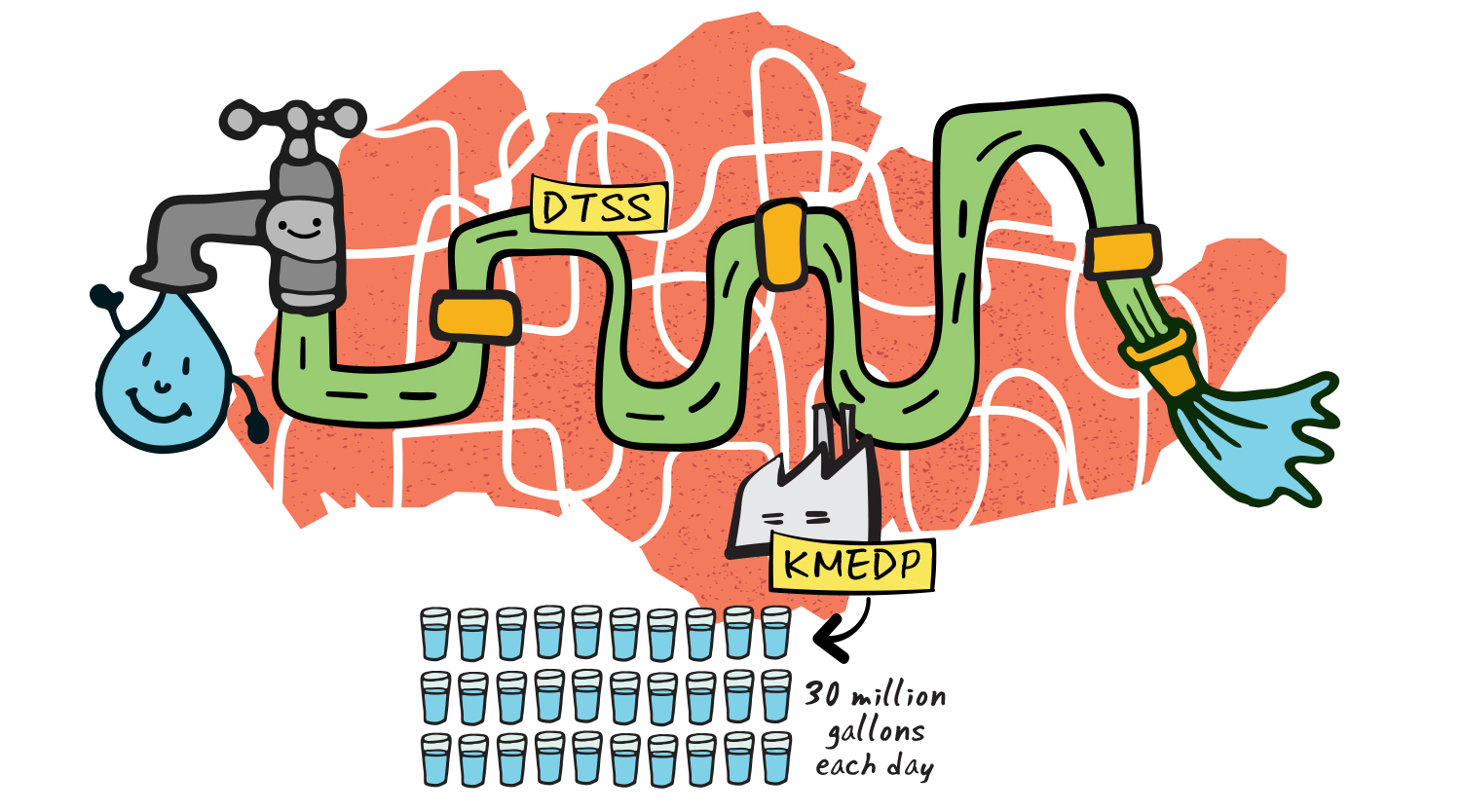
The Keppel Marina East Desalination Plant, Singapore’s fourth desalination plant, began operations in July 2020.
It can produce about 30 million gallons of fresh drinking water a day.
This can meet the demands of about 200,000 households, and makes up about 7% of Singapore's daily water demand of 430 million gallons – that’s 782 Olympic-sized swimming pools.
Singapore’s fifth desalination plant, the Jurong Island Desalination Plant, is expected to commence operations in 2021.
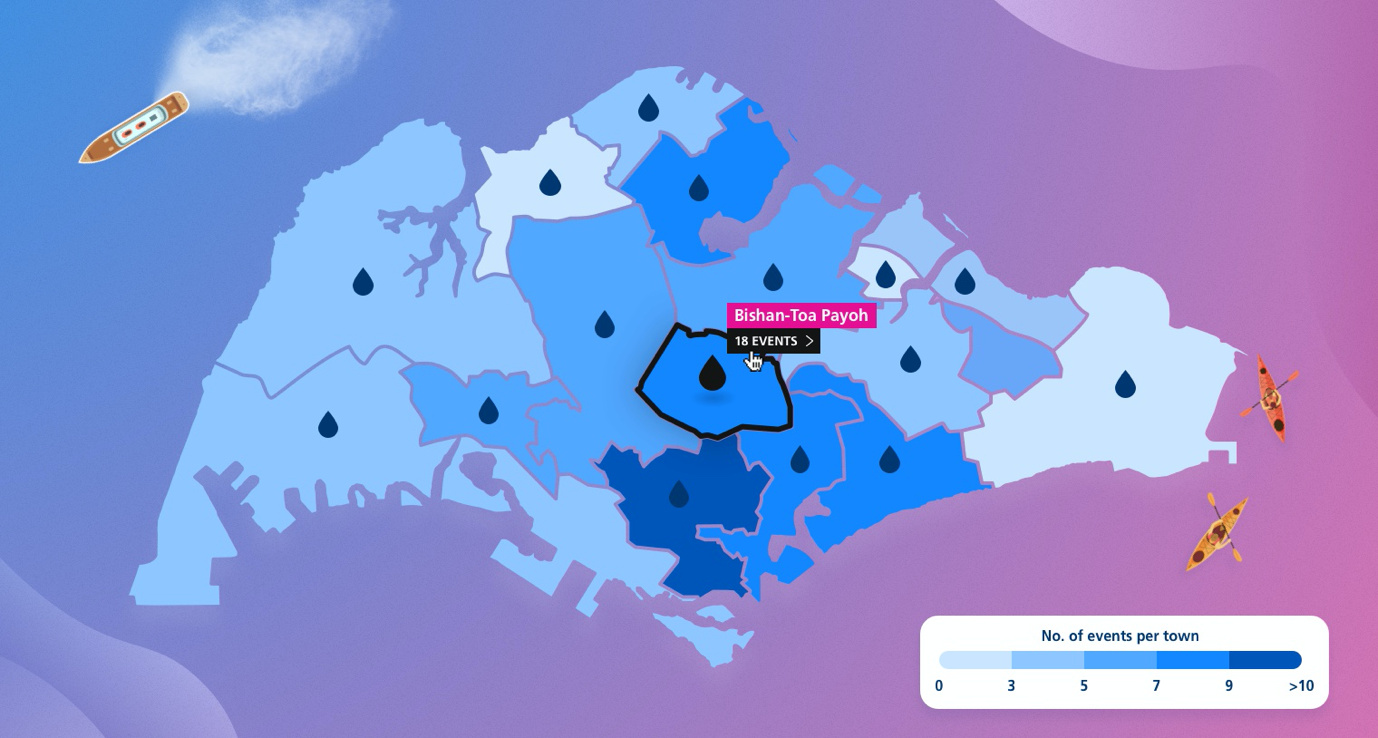
PUB’s Make Every Drop Count campaign in March rallies the community to promote water conservation. Watch a map of Singapore turn blue as more ground-up initiatives take place among businesses, campuses and the community.
This year’s campaign “The Climate is Changing” aims to heighten public awareness of climate change’s impact on Singapore and the need to take action early to protect our homes and livelihoods. Check out the TVC for this year’s campaign.
- POSTED ON
Mar 23, 2021
- TEXT BY
Kate Ling
- ILLUSTRATION BY
mushroomhead
-
Infographics
Projects That Push Productivity
-
Infographics
Mapping The Way To A Digital Government





